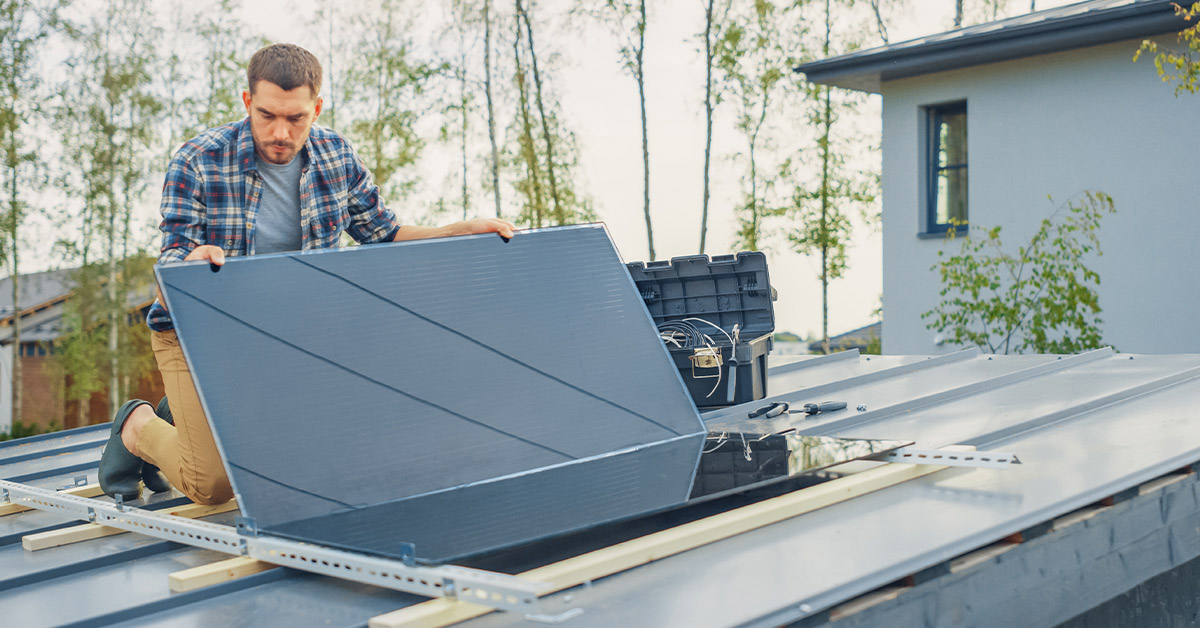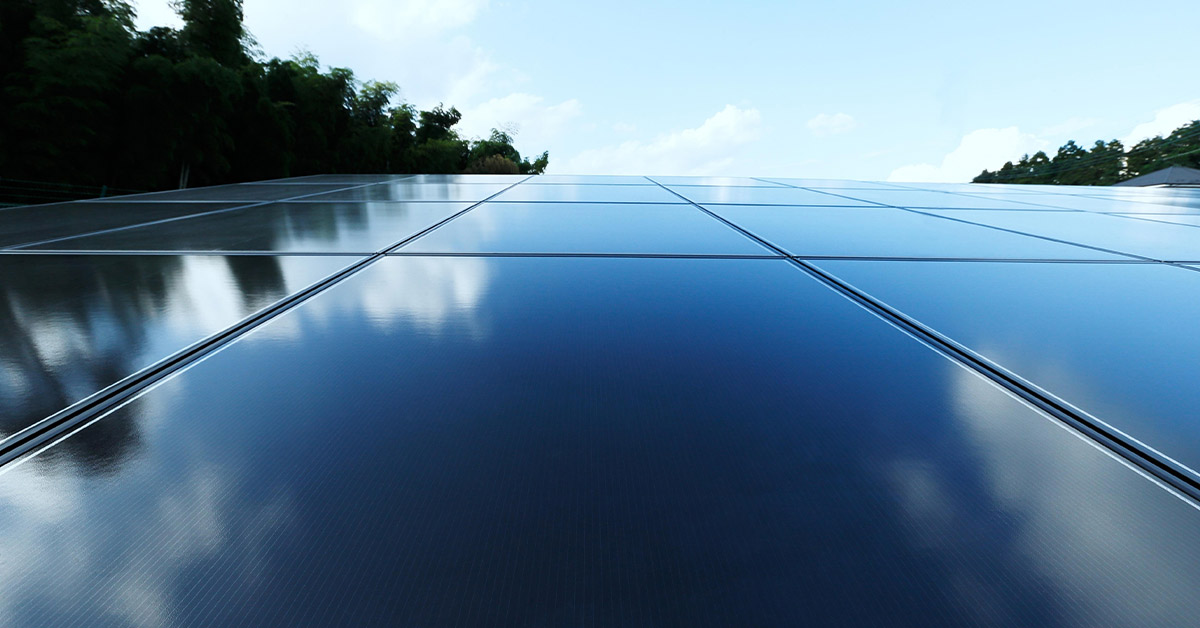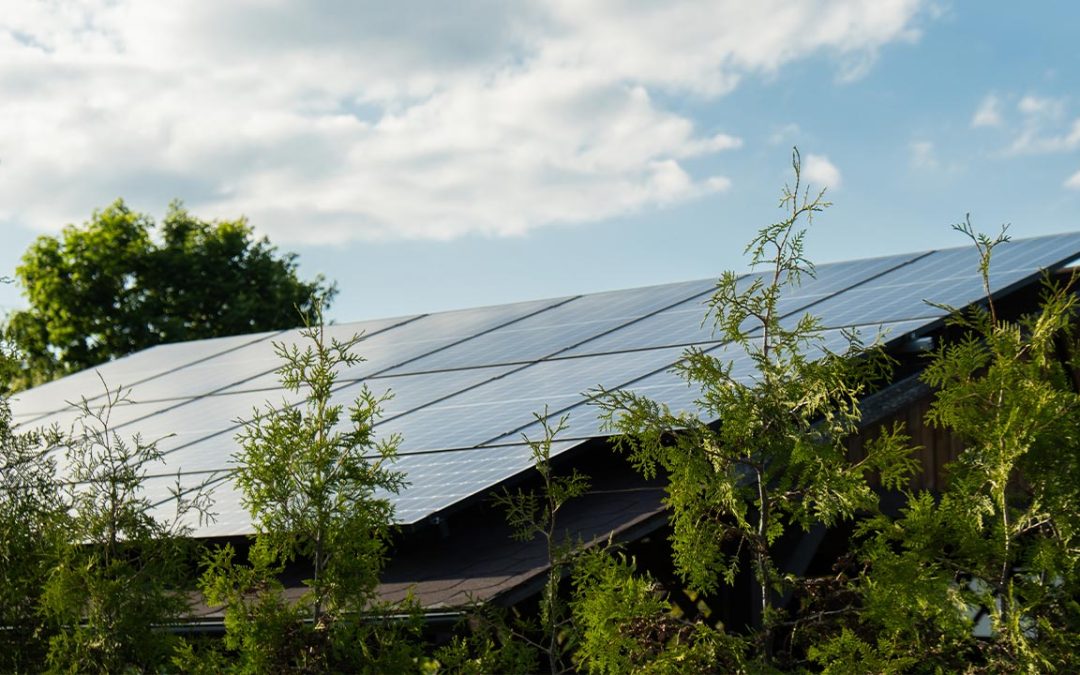Do I Live in a Suitable Climate?
Most people believe they need to live somewhere where it’s always sunny, like California or Texas, but this isn’t necessarily true. Every state experiences the range of seasons, and no matter where you are, solar panel installation is a viable option. Even a state that experiences dark winters like Massachusetts, which ranked #8 of the best states for solar in 2021, still produces a significant amount of solar energy, dispelling the myth that sunny places are the only places worth the investment into solar.
Do I Have Ideal Roofing Materials?
Although solar panels can be placed on any roof, some will have an easier installation process than others. Asphalt shingles are known as the best roof for solar panels, and luckily also the most common type of roof. Their durability is ideal for drilling studs into the roof, then attaching mounts to the studs which support your solar panels. For tiled roofs composed of clay, slate, or concrete, you’ll need to remove tiles to install the feet of your solar panel directly to your roof for a stronger connection. Metal roofs with standing seams remove the need to drill for your solar panel mountings, resulting in a cheaper installation process. Tar and gravel roofs are usually flat, meaning you’ll need to tilt your panels at a 30-degree angle to optimize your sunlight, but they provide powerful support for panels and are not susceptible to damage in the future.

Will My Roof Support Solar Panels?
Most solar panels have a guarantee to produce power for 25 years, but some studies have shown they will continue to generate energy for up to 40 years. If you have an older roof, you may want to get it replaced before solar panels, which may increase your up-front costs. However, this is a better alternative than having to pay for repairs after the weight of your solar panels potentially cracks your roof a handful of years after installation. We suggest having an expert come check your roof in case you need to make some improvements.
Does My Roof Have Suitable Sun Exposure?
To maximize your solar panel’s energy production, you’ll want to ensure your rooftop has full sun exposure between 9 am and 3 pm throughout the entire year without any obstacles that will shadow your panels. For example, it may be time to trim back some large branches of trees that may throw a shadow over your roof. A member of the team at Trinity Wiring Solutions is happy to give an on-site recommendation giving you a better idea of your roof’s sun exposure, and whether a taller building next to your home will cast a shadow too large for you to install solar panels.

Where Should I Install Solar Panels on My Roof?
The angle of your roof is essential in determining solar energy production. As a rule, south-facing roofs with solar panels that are tilted at 30 degrees will capture the most sunlight, but this isn’t viable for every rooftop or electricity consumption pattern. If morning is your busiest time of day, when you might have lots of activity preparing for school and work, running your dishwasher or laundry machine, and ironing clothes, then panels on your eastern roof will absorb more morning sunlight to power your chores. For families that use more energy in the afternoon, using the TV, computer, and other appliances right after school ends, then we suggest panels on your western roof. Stay-at-home parents, retirees, or anyone working from home will use more electricity from mid-morning to mid-afternoon and will benefit from solar panels installed on the northern roof. And for families who use energy evenly throughout the day, we suggest a system over 4kW that will help you spread panels evenly across the whole roof to use appliances at any time of day. If you only have space for solar panels on a certain section of your roof, you’ll need to adapt your electricity consumption habits to a particular time of day. For example, a home with solar panels on a west-facing roof should do its best to run the washer and dryer in the afternoon.
Bringing Solar to Your Roof
Now that you’ve checked your roof’s sun exposure, age, materials, and directional advantages along with your family’s consumption habits, we hope you feel you can make an informed decision on whether solar panels are an ideal investment for your home. If you are still unsure about what direction to place your solar panels or are prepared to bring solar panels to your DMV area home, contact us at Trinity Wiring Solutions today to begin!
